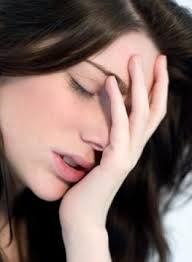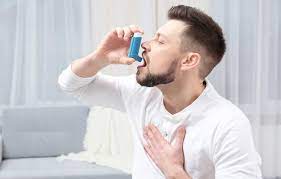Low Blood Pressure
Low Blood Pressure
"Hypotension, Orthostatic Intolerance, निम्न रक्ताचाप"
"Low B.P Systolic 100/70 mm Diastolic "
Hypotension is the medical term for low blood pressure. Any reading below 120/80 mm Hg is considered as low blood pressure.
If you maintain an ideal body weight, are a non smoker and exercise regularly you could be hypotensive. As most athletes are! Low B.P should be regarded as a symptom rather than a disease. If physiological, it adds to longevity. Hypotension is a sign of fitness and good health, but we must know that it can cause fainting and dizzy spells as well as neurological or endocrine disorders. Constitutional permanent hypotension occurs in about 3% of healthy individuals more common in females.
That spinning feeling when you stand up probably means your blood pressure has probably dropped. If the blood pressure becomes exceedingly low it may cause oxygen deprivation for the brain and other vital organs. the patient may go in the state of shock that can threaten his/or her life. It is a condition in which the action of heart in forcing the blood through the arteries is weak, this is the direct outcome of a weakened and devitalized system. An estimated 10-20% of people over age 65 years have postural hypertension.
Introduction
Low blood pressure is also called hypo tension or orthostatic intolerance, generally found when astronauts returned home. Chronic low B.P with no symptoms is almost never serious. But health problems can occur when blood pressure drops suddenly and the brain is deprived of an adequate blood supply. This can lead to dizziness or lightheartedness. When the blood pressure falls, vital organs (such as brain, heart and skeletal muscles) are not perfused adequately and the symptoms of low BP occurs.
Sudden drop in blood pressure most commonly occur in someone who's rising from a lying down or sitting position to standing. This kind of low blood pressure is known as postural hypotension or orthostatic hypotension.
Another type of low blood pressure can occur when someone stands for a long time (Traffic Police). This is called neurally mediated hypotension.
Postural hypotension is considered a failure of the cardiovascular system or nervous system to react appropriately to sudden changes. Normally, when you stand up, some blood pools up in your lower extremities. Uncorrected this would cause your blood pressure to fall. But your body normally compensates by sending messages to your heart to beat faster and to your blood vessels to constrict. This offsets the drop in blood pressure. If this does not happen or happens too slowly, postural hypotension results and can lead to fainting.
The risk of both low and high blood pressure increases with age, because of normal changes occur due to ageing. Hypotension after meals is a common cause of dizziness and falls after eating. This is most common after a large meals containing a lot of carbohydrates.It's believed to be caused by blood pooling into the vessels of stomach and intestine. A condition is also diagnosed in patients as Postural Orthostatic Tachycardia Syndrome (POTS which is predominantly found in women. The dizziness that it causes is life-changing and can be debilitating.
Sudden drop in blood pressure most commonly occur in someone who's rising from a lying down or sitting position to standing. This kind of low blood pressure is known as postural hypotension or orthostatic hypotension.
Another type of low blood pressure can occur when someone stands for a long time (Traffic Police). This is called neurally mediated hypotension.
Postural hypotension is considered a failure of the cardiovascular system or nervous system to react appropriately to sudden changes. Normally, when you stand up, some blood pools up in your lower extremities. Uncorrected this would cause your blood pressure to fall. But your body normally compensates by sending messages to your heart to beat faster and to your blood vessels to constrict. This offsets the drop in blood pressure. If this does not happen or happens too slowly, postural hypotension results and can lead to fainting.
The risk of both low and high blood pressure increases with age, because of normal changes occur due to ageing. Hypotension after meals is a common cause of dizziness and falls after eating. This is most common after a large meals containing a lot of carbohydrates.It's believed to be caused by blood pooling into the vessels of stomach and intestine. A condition is also diagnosed in patients as Postural Orthostatic Tachycardia Syndrome (POTS which is predominantly found in women. The dizziness that it causes is life-changing and can be debilitating.
Causes
* Nutritional deficiency : Fasting & Malnutrition. Diet deficient in calories, proteins,vitamins C & vitamin B.
* Bleeding in the gastrointestinal tract or through the kidneys or bladder.
* All anti hypertensive drugs mainly due to diuretics, beta- blockers and vaso dilators,calcium channels blockers,angiotensin converting enzyme ACE inhibitors.
* Emotional problems are a far more frequent cause of low blood pressure.
* Endocrine disorders : Hormonal problem : Addison's disease, Hypothyroidism,diabetes,
* Myocardial infarction,pulmonary tuberculosis.
* Low or high body temperature.
* Septic shock or severe blood infections.
* Dehydration from vomiting, diarrhea or fever.
* Anaphylaxis A severe allergic reaction.
* Autonomic nervous dysfunction.
* Drugs that have hypotension as side effect: including nitrates,erectile dysfunction medication, drugs for Parkinson's diseases,anti-anxiety agent, sedative,hypnotics, cyclic antidepressant and neuroleptics.
* Acetylcholine dilates the blood vessels, and this reduces blood pressure and blood supply to the brain,leading to dizziness and fainting.
* Anesthesia During surgery,deliberately lowering blood pressure can reduce blood loss.
* Prolonged bed rest.
* Emotional problems are a far more frequent cause of low blood pressure.
* Endocrine disorders : Hormonal problem : Addison's disease, Hypothyroidism,diabetes,
* Myocardial infarction,pulmonary tuberculosis.
* Low or high body temperature.
* Septic shock or severe blood infections.
* Dehydration from vomiting, diarrhea or fever.
* Anaphylaxis A severe allergic reaction.
* Autonomic nervous dysfunction.
* Drugs that have hypotension as side effect: including nitrates,erectile dysfunction medication, drugs for Parkinson's diseases,anti-anxiety agent, sedative,hypnotics, cyclic antidepressant and neuroleptics.
* Acetylcholine dilates the blood vessels, and this reduces blood pressure and blood supply to the brain,leading to dizziness and fainting.
* Anesthesia During surgery,deliberately lowering blood pressure can reduce blood loss.
* Prolonged bed rest.
" Exercise with proper hydration will tackle low B.P."
Diagnosis
* Examining pulse volume which is low.
* Check the Blood Pressure.
* Electrocardiogram (E.C.G) to check for heart .
* Ultrasound to visualize heart.
* Blood test to look foe anemia and blood sugar.
* Check the Blood Pressure.
* Electrocardiogram (E.C.G) to check for heart .
* Ultrasound to visualize heart.
* Blood test to look foe anemia and blood sugar.
* Electrocardiogram (E.C.G) to check for heart .
* Ultrasound to visualize heart.
* Blood test to look foe anemia and blood sugar.
Sign & symptoms
* Lightheartedness or dizziness,inability to concentrate,mild depression,blurred vision and fatigue are all due to low circulation and poor supply of nutrients to the brain and vital organs.
Weakness,syncope.
* Sleepiness.
* Fainting or syncope,,nausea.
* Palpitation
* Low circulation to the extremities leads to the symptoms of cold and pale skin as the nutrients being transported can be in short supply.
* During pregnancy during first 24 weeks blood pressure tends to decrease.
* Dehydration and unusual thirst
* Lack of concentration.
* Shock is a life-threatening condition where persistently low blood pressure causes organs such as kidney, liver, heart, lung and brain to fail rapidly.
* Rapid shallow breathing.
*Depression.
Weakness,syncope.
* Sleepiness.
* Fainting or syncope,,nausea.
* Palpitation
* Low circulation to the extremities leads to the symptoms of cold and pale skin as the nutrients being transported can be in short supply.
* During pregnancy during first 24 weeks blood pressure tends to decrease.
* Dehydration and unusual thirst
* Lack of concentration.
* Shock is a life-threatening condition where persistently low blood pressure causes organs such as kidney, liver, heart, lung and brain to fail rapidly.
* Rapid shallow breathing.
*Depression.
Lifestyle
* Drink more water.
* To help improve circulation, pump your feet and ankles ( contract and relax your calf muscles )a few times before standing up. Then proceed slowly.
* Try eating smaller and more frequent meals.
* Get up slowly from sitting to standing.
* Take care while getting out of bed , move slowing from lying to sitting to standing.
* Raise the head of your bed by about six inches with bricks or heavy books.
* When getting out of bed, sit on the edge of the bed for a while before starting to walk.
* Extra pillow under the head at night.
* To help improve circulation, pump your feet and ankles ( contract and relax your calf muscles )a few times before standing up. Then proceed slowly.
* Try eating smaller and more frequent meals.
* Get up slowly from sitting to standing.
* Take care while getting out of bed , move slowing from lying to sitting to standing.
* Raise the head of your bed by about six inches with bricks or heavy books.
* When getting out of bed, sit on the edge of the bed for a while before starting to walk.
* Extra pillow under the head at night.
* Daily dry friction and sponge should be undertaken.
* One should take sun and air bath and spend as much time as possible in open air.
* Hot Epsom-salt bath is one of the simplest remedy for low blood pressure.The bath should be taken just before going to bed.
* Abdominal binder may help.
* One should take sun and air bath and spend as much time as possible in open air.
* Hot Epsom-salt bath is one of the simplest remedy for low blood pressure.The bath should be taken just before going to bed.
* Abdominal binder may help.
Don'ts
* Avoid heavy weight lifting.
* Avoid straining while on toilet.
* Avoid straining while on toilet.
* Avoid standing still in a place for long periods of time in hot humid weather.
* Avoid prolonged exposure to hot water,such as hot shower, spas or hot sulfur baths.
* If you get dizzy, sit down or lie down.It may be helpful to keep a chair or a stool in the shower in case you need to sit.
* Do not bend down or change posture suddenly.
* Do not drink too much alcohol.
* Rest after eating.
* Avoid sedatives i.e Compose. * Avoid sudden change of posture.
* Do not bend down or change posture suddenly.
* Do not drink too much alcohol.
* Rest after eating.
* Avoid sedatives i.e Compose. * Avoid sudden change of posture.
Exercise
* Exercise regularly to improve circulation.
* Exercises like walking, swimming and cycling.
* Exercises like walking, swimming and cycling.
Yoga
Caution : Do not perform Sirsasna and Sarvangasana if you suffer from dizziness or high blood pressure..
All forward bending posses are beneficial for the persons suffering from either high or low blood pressure.
Yoga poses for low BP
Pranayama
Bhastrika Pranayama Bellows breath. Inhalation and exhalation both are forced. There is movement of belly with every breath.
Kapalbahati Pranayama (Frontal brain cleansing breath) is ideal for the patient of hypotension. Normal inhalation but forceful Exhalation.
Nadi sodhana Pranayama (Alternate nostril breathing without the retention of breath)
Uddiyana bandha (Abdominal contractions)
Kumbhaka ( Alternate nostril breathing with the retention of breath)
Nadi sodhana Pranayama (Alternate nostril breathing without the retention of breath)
Uddiyana bandha (Abdominal contractions)
Kumbhaka ( Alternate nostril breathing with the retention of breath)
Meditation
Meditate for a few minutes daily on a mantra or on your breath with eyes closed. Sit in any comfortable posture on the floor or on a chair with your back upright. Gently keep changing your sitting posture if numbness persists in your extremities.
Abhyanga
.Ayurvedic massage provides physical,mental and emotional benefits. It improves overall well being and promotes energy and longetivity. it improves blood circulation.
Mudra
Vyana Mudra
Prana Mudra
Diet
* Have adequate salt intake. Sodium chloride or common salt causes retention of fluids in tissues which has a binding effect on the capillaries.
* Munakka Raisins helps to treat hypotension in natural manner. You can soak some Raisins overnight and then boil it with milk and having it in the morning. Or you can just add a fistful of soaked raisins in your breakfast regimen. It increases vitality and blood and helps in better circulation.
* Munakka Raisins helps to treat hypotension in natural manner. You can soak some Raisins overnight and then boil it with milk and having it in the morning. Or you can just add a fistful of soaked raisins in your breakfast regimen. It increases vitality and blood and helps in better circulation.
.
* Fresh fruit diet such as orange,apple,pineapple,grapes.pear.peach and papaya frequently.
* Fresh fruit diet such as orange,apple,pineapple,grapes.pear.peach and papaya frequently.
* Take three meals a day.
* Caffeine helps Caffeinated beverages like tea or coffee helps to boost your blood pressure and get your circulation going on.
* Take a glass of Almond milk (बादाम ) daily. Soak 5-6 almonds overnight,peel them in the morning, make a paste and boil them into a drink. Drink this everyday to prevent your blood pressure falling.
* Tulsi (Ocimum sanctum ) Leaves A home remedy from our granny's treasure trove.Chew 5-6 tulsi leaves every morning. Tulsi leaves have high levels of potassium, magnesium and vitamin C, which can help in regulating your blood pressure. It is also loaded with anti-oxidant called Eugenol which keeps the blood pressure under control.
* Raw Beet juice.
* Inj Dopamine.
* For Anemia take iron preparations. Tab Ferrous sulphate.
Ayurveda
* Dalchini.Cinnamum in tea.
* For Vata types use garlic, for Kapha types use Trikatu (black pepper,dry ginger and long pepper) to be taken with honey and for pitta types use saffron or turmeric in a base of aloe vera gel.
* For Anemia take Amla powder.
* Decoction of root of jatamasi.
* Ashwagamdha powder should be taken with Luke worm milk or water.
"पैर गरम ,पेट नरम और सिर ठंडा"
https://madhuchhandacdmo.blogspot.com/2019/07/low-blood-pressure.html
* Caffeine helps Caffeinated beverages like tea or coffee helps to boost your blood pressure and get your circulation going on.
* Take a glass of Almond milk (बादाम ) daily. Soak 5-6 almonds overnight,peel them in the morning, make a paste and boil them into a drink. Drink this everyday to prevent your blood pressure falling.
* Tulsi (Ocimum sanctum ) Leaves A home remedy from our granny's treasure trove.Chew 5-6 tulsi leaves every morning. Tulsi leaves have high levels of potassium, magnesium and vitamin C, which can help in regulating your blood pressure. It is also loaded with anti-oxidant called Eugenol which keeps the blood pressure under control.
* Raw Beet juice.
* Banana is a food full of energy, good for low BP.
* Chocolate.
* Fenugreek or Methi leave vegetable along with ginger,garlic and capsicum.
* Chocolate.
* Fenugreek or Methi leave vegetable along with ginger,garlic and capsicum.
Treatment
* The use of salt is valuable in low blood pressure. One should take extra salt in diet.
* Treatment for low blood pressure should aim at regeneration of the whole system.
* Protein,vitamin C and all vitamins of B group have been found effective in treating low blood pressure. Panthothenic acid is of particular importance.
* If low blood pressure is possibly due to a medication ,the dose may be altered, or another medication prescribed.
* Wear compression stockings that covers calf and the thighs : Elastic lower body stocking to be worn when up and bout. These may restrict blood flow to the legs thus keeping more blood in the upper body. This will increase circulation and improve blood pressure.
* Tab Fludrocortisone (0.1mg) daily. Some older people who feel faint when they suddenly stand up may be prescribed medication to narrow the arteries. Fludrocortisone helps to boost blood volume.
* Midodrine also helps raise blood pressure levels.
* Drug of choice : Mephentine sulphate. 20-25 mg BD
* Amphetamine 5-10 mg may be useful.
* Saline Injections to astronauts after landing.
* 250 ml to 1000 ml I V glucose saline.* Treatment for low blood pressure should aim at regeneration of the whole system.
* Protein,vitamin C and all vitamins of B group have been found effective in treating low blood pressure. Panthothenic acid is of particular importance.
* If low blood pressure is possibly due to a medication ,the dose may be altered, or another medication prescribed.
* Wear compression stockings that covers calf and the thighs : Elastic lower body stocking to be worn when up and bout. These may restrict blood flow to the legs thus keeping more blood in the upper body. This will increase circulation and improve blood pressure.
* Tab Fludrocortisone (0.1mg) daily. Some older people who feel faint when they suddenly stand up may be prescribed medication to narrow the arteries. Fludrocortisone helps to boost blood volume.
* Midodrine also helps raise blood pressure levels.
* Drug of choice : Mephentine sulphate. 20-25 mg BD
* Amphetamine 5-10 mg may be useful.
* Saline Injections to astronauts after landing.
* Inj Dopamine.
* For Anemia take iron preparations. Tab Ferrous sulphate.
Ayurveda
* Dalchini.Cinnamum in tea.
* For Vata types use garlic, for Kapha types use Trikatu (black pepper,dry ginger and long pepper) to be taken with honey and for pitta types use saffron or turmeric in a base of aloe vera gel.
* For Anemia take Amla powder.
* Decoction of root of jatamasi.
* Ashwagamdha powder should be taken with Luke worm milk or water.
"पैर गरम ,पेट नरम और सिर ठंडा"
https://madhuchhandacdmo.blogspot.com/2019/07/low-blood-pressure.html
* Medicine as suggested above should only be taken under the consultation and supervision of registered medical practitioner.
























.jpeg)
Thanks.
ReplyDeleteThanks.
ReplyDelete